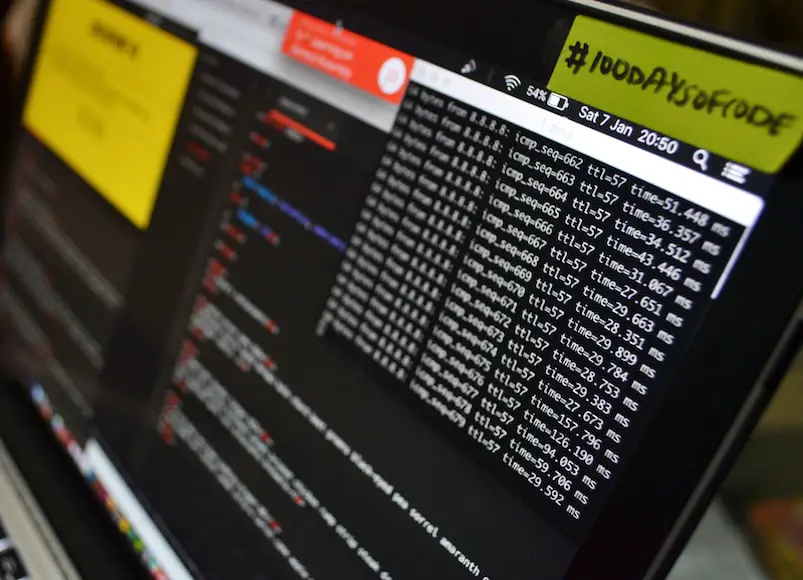The future of technology is always uncertain. But one thing is for sure, the rise of artificial intelligence (AI) and cybersecurity are two major trends that will shape it. As AI becomes more sophisticated, it will increasingly be used to automate tasks that have traditionally been done by humans.
This includes everything from simple repetitive tasks to complex decision-making processes. At the same time, as businesses become more reliant on digital systems and data, they are also becoming more vulnerable to cyberattacks. As a result, cybersecurity is becoming an increasingly important concern for organizations of all sizes.
The future of our world is inextricably linked to the development of artificial intelligence (AI). As AI technology advances, so too does the threat of cyberattacks. This has led to a debate over which is more important: cybersecurity or artificial intelligence?
There are pros and cons to both sides of the argument. On one hand, cybersecurity is essential to protecting our data and keeping our information safe. On the other hand, artificial intelligence has the potential to revolutionize many industries and make our lives easier.
So, which is more important? Cybersecurity or artificial intelligence? The answer may surprise you.
Artificial Intelligence Vs Cyber Security | Choose your career path in 2022
Which is more important, Cyber Security Or Artificial Intelligence?
Artificial intelligence has been touted as the next big thing in cyber security. But what is it, and how does it differ from traditional cyber security? Simply put, artificial intelligence (AI) is a process of programming computers to make decisions for themselves.
This can be done in a number of ways, but the most common is through machine learning, which is where the computer “learns” from data that it is given. This is different from traditional cyber security, which relies on humans to identify threats and take action to protect against them. The advantage of AI is that it can scale more easily to meet the increasing demands of protecting against ever-more sophisticated attacks.
There are already some examples of AI being used in cyber security, such as in intrusion detection systems and malware analysis. However, its potential goes much further than this. For instance, AI could be used to automatically generate new signatures for known malware or to detect Zero Day attacks before they can do any damage.
Of course, like any new technology, there are also risks associated with AI. One worry is that if attackers get hold of an AI system they could use it to their own ends – for example by creating fake news stories or launching targeted phishing attacks. Another concern is that automated systems may not always make the best decisions – leading to false positives or even missed threats altogether.
Overall though, the advantages of using artificial intelligence in cyber security seem to outweigh the risks. As our world becomes increasingly digitalized and interconnected, we need all the help we can get to keep our information safe from harm.
Is Cyber Security Harder Than Ai?
It’s hard to make a direct comparison between the two fields, as they each present unique challenges. However, we can say that cybersecurity is generally more difficult than AI. The reason for this is that cybersecurity has to deal with a constantly changing landscape.
New threats are always emerging, and security professionals have to be constantly on their toes to stay ahead of the curve. This means that there’s never a time when you can relax and take a break from learning – you always have to be one step ahead of the attackers. In contrast, AI presents its own difficulties, but these tend to be more static in nature.
Sure, technology is always evolving and becoming more sophisticated, but the core problems remain largely the same. So while it might be challenging to solve an AI problem, once you find a solution it’s likely to remain effective for longer periods of time. Overall then, we would say that cybersecurity is generally more difficult than AI – though both disciplines certainly pose their own unique sets of challenges!

Will Ai Take Over Cyber Security?
The short answer is no, AI will not take over cyber security. Here’s why:
1. Cybersecurity is about more than just technology. It’s about people and processes too. Technology can help automate some tasks, but it can’t do everything. For example, you need humans to create and maintain effective security policies. And you need people to carry out tasks like incident response and forensics.
2. AI needs data to learn from. In order for AI to be effective in cyber security, it needs data to learn from.
But unfortunately, there’s a lack of high-quality data sets for training AI models in this domain. This is due to the fact that most companies are reluctant to share their cybersecurity data for fear of revealing weaknesses or suffering reputational damage.
3. The bad guys are also using AI. If we want to use AI for good in cyber security, we have to remember that the bad guys are using it too – for malicious purposes such as launching targeted attacks or creating new types of malware. So we need to be careful about how we deploy AI in this space, lest we give the attackers a leg up.
Is Cybersecurity the Same As Ai?
Cybersecurity and AI are two very different things. Cybersecurity is the practice of protecting computer networks and systems from unauthorized access or theft, while AI is a branch of computer science that deals with the creation of intelligent agents, which are software programs that can reason and make decisions on their own.
Cybersecurity Artificial Intelligence Job Market & Salary
When it comes to salaries in the cybersecurity industry, there is a wide range. This is largely due to the fact that there are many different types of jobs within the field of cybersecurity. However, one area that seems to be consistently growing in demand (and pay) is artificial intelligence (AI).
There are many reasons why AI is becoming increasingly important in cybersecurity. First, as cyberattacks become more sophisticated, traditional security methods are becoming less effective. This has led to a need for new approaches that can keep up with the ever-evolving threat landscape.
AI provides a way to do this by constantly learning and evolving along with the threats. Second, AI can help automate some of the tedious and time-consuming tasks that security professionals have to do on a daily basis. This frees up time so that they can focus on more strategic tasks.
Finally, AI can provide insights and analytics that humans simply cannot obtain on their own. This allows organizations to make better decisions about their overall security posture. Due to all of these factors, jobs that involve AI in some way are among the highest paying in the cybersecurity field.
For example, positions such as Security Architect or Principal Data Scientist can command annual salaries well into six figures. So if you’re looking to maximize your earnings potential in cybersecurity, developing expertise in AI is a good place to start!

Ai Or Cyber Security
Ai Or Cyber Security Reddit: When it comes to online security, there are two schools of thought – those who believe that artificial intelligence (AI) can help keep us safe, and those who think that AI is a threat to our cyber security. So which is it?
proponents of AI argue that its ability to learn and evolve at a faster pace than humans makes it an invaluable tool in the fight against cybercrime. They say that AI can be used to identify patterns and behavior that human analysts would never be able to spot and that it can be used to automatically block malicious activity before it happens. Critics of AI argue that its very nature – the fact that it is not human – makes it inherently untrustworthy.
They say that we cannot predict how AI will evolve over time and that as it becomes more sophisticated, it could become a powerful weapon in the hands of criminals. They also point out that AI is often only as good as the data it is given, and if this data is biased or flawed, then the results of any analysis will be too. So what’s the verdict?
Is AI a friend or foe when it comes to cyber security? The truth is, like most things in life, there are both risks and benefits associated with using AI for online security. However, we believe that the potential benefits far outweigh the risks – after all, wouldn’t you rather have your security system powered by something that’s constantly learning and evolving rather than something stagnant?
Artificial Intelligence And Cybersecurity: Opportunities And Challenges
When it comes to cybersecurity, artificial intelligence (AI) is both an opportunity and a challenge. On the one hand, AI can be used to create more sophisticated and effective security systems. On the other hand, AI-powered attacks are becoming more common and more difficult to defend against.
Here, we take a look at both sides of the coin.
Benefits of Using AI in Cybersecurity
There are many potential benefits of using AI in cybersecurity.
For example, AI can be used to:
Analyze large amounts of data: Security systems generate a lot of data (e.g., log files, network traffic data, etc.), which can be overwhelming for human analysts. AI can help by sifting through this data more quickly and effectively identifying patterns and anomalies that may indicate a security threat.
Improve detection of known threats: Traditional signature-based malware detection methods are becoming less effective as attackers increasingly use polymorphic malware (i.e., malware that mutates to evade detection). AI-based approaches such as behavior analysis or heuristics can be much more effective at detecting these types of threats.
Block unknown threats: It’s not always possible to anticipate every type of attack that might be launched against a system.
However, by analyzing past attacks and identifying common patterns, AI can help identify new attacks as they happen and block them before they cause any damage.
Automate repetitive tasks: Many security tasks (e.g., reviewing log files) are repetitive and time-consuming. AI can automate these tasks so that human analysts can focus on more important tasks such as investigating potential incidents or developing new defenses.
Future of Ai in Cyber Security
The future of artificial intelligence (Ai) in cyber security is both immensely exciting and somewhat uncertain. On the one hand, Ai holds tremendous potential for enhancing the effectiveness of cyber security solutions, automating tedious and time-consuming tasks, and helping to identify previously hidden threats. On the other hand, as Ai continues to evolve and become more sophisticated, there is a risk that it could be used by malicious actors to launch more sophisticated attacks.
In order to ensure that the benefits of Ai are realized and the risks are minimized, it is important for organizations to carefully consider how they can best make use of this technology. One key area where Ai can play a role is in automated threat detection and response. By using machine learning algorithms, Ai-enabled systems can learn to recognize patterns of behavior that indicate an attack is underway and take action accordingly.
This could potentially allow organizations to thwart attacks before any damage is done. Another area where Ai can be helpful is in identifying new vulnerabilities. As hackers become more adept at exploiting known vulnerabilities, they will increasingly turn their attention to finding new ones.
By analyzing large volumes of data, Ai systems can help identify previously unknown vulnerabilities before they are exploited. Ultimately, the future of Ai in cyber security will depend on how it is used by both organizations and individuals. Used responsibly, it has the potential to greatly enhance our ability to defend against increasingly sophisticated attacks.
Data Science Vs Artificial Intelligence
Data science and artificial intelligence (AI) are two of the hottest fields in tech right now. Both are being used to solve real-world problems and are providing businesses with a competitive edge. But what’s the difference between these two disciplines?
In short, data science is all about extracting insights from data using statistical methods, while AI involves building algorithms that can learn and make predictions on their own. Data scientists typically use tools like R or Python to clean, manipulate, and visualize data. They then use statistical techniques to identify patterns and trends.
Based on their findings, they develop hypotheses and test them using further analysis. Ultimately, their goal is to provide recommendations or solutions that can help improve business outcomes. On the other hand, AI focuses on building algorithms that can automatically learn and improve over time without human intervention.
These algorithms are designed to make predictions or decisions based on data. For example, a machine learning algorithm might be used to predict which customers are likely to churn so that steps can be taken to retain them. Or an artificial intelligence system might be used to automate tasks like customer service or fraud detection.
So which one should you choose for your next project? It really depends on what you’re trying to achieve. If you need help making sense of a large dataset or want to uncover hidden patterns, data science is probably your best bet.
Data Vs Cyber Security
Data security and cyber security are both important to businesses and organizations. They are two different things, however, and it’s important to understand the difference.
Data security is the protection of data from unauthorized access or theft.
Cyber security, on the other hand, is the protection of computer networks and systems from unauthorized access or attack.
Data security is important because it helps to protect sensitive information from being accessed by people who should not have access to it. Cyber security is important because it helps to protect computer networks and systems from being compromised by hackers or malware.
There are many different ways to secure data and computer networks. Some common methods include encryption, firewalls, and intrusion detection systems. businesses and organizations need to use a combination of these methods to effectively protect their data and systems from attack.
Artificial Intelligence in Cyber Security
In the past few years, artificial intelligence (AI) has become one of the most popular topics in both the academic and business world. As businesses increasingly collect and store large amounts of data, they are looking for ways to make better use of this information. AI can help organizations automate tasks, improve decision-making, and gain insights from data.
In addition to its potential benefits for businesses, AI is also being used in the field of cyber security. Cyber security experts are using AI to develop new ways to protect networks and systems from attack. By using machine learning algorithms, they can create systems that can detect anomalies and suspicious activity.
These systems can then take action to block or respond to attacks. AI is still in its early stages of development and there are many challenges that need to be addressed before it can be fully deployed in cyber security applications. However, the potential benefits of using AI in this field are significant and researchers are actively exploring its possibilities.
Conclusion
Cybersecurity and artificial intelligence are two of the hottest topics in tech right now. But what’s the difference between them? And which one is more important?
Cybersecurity is the practice of protecting computer systems from theft or damage. This can be done through a variety of means, including firewalls, encryption, and user authentication. Artificial intelligence, on the other hand, is a branch of computer science that deals with creating intelligent machines.
This can be anything from simple algorithms that make recommendations to complex systems that can learn and improve over time.
So, which one is more important? That really depends on your perspective.
If you’re worried about your personal data being stolen or your computer being hacked, then cybersecurity is probably more important to you. On the other hand, if you’re interested in using technology to automate tasks or make better decisions, then artificial intelligence will be more relevant to you.


